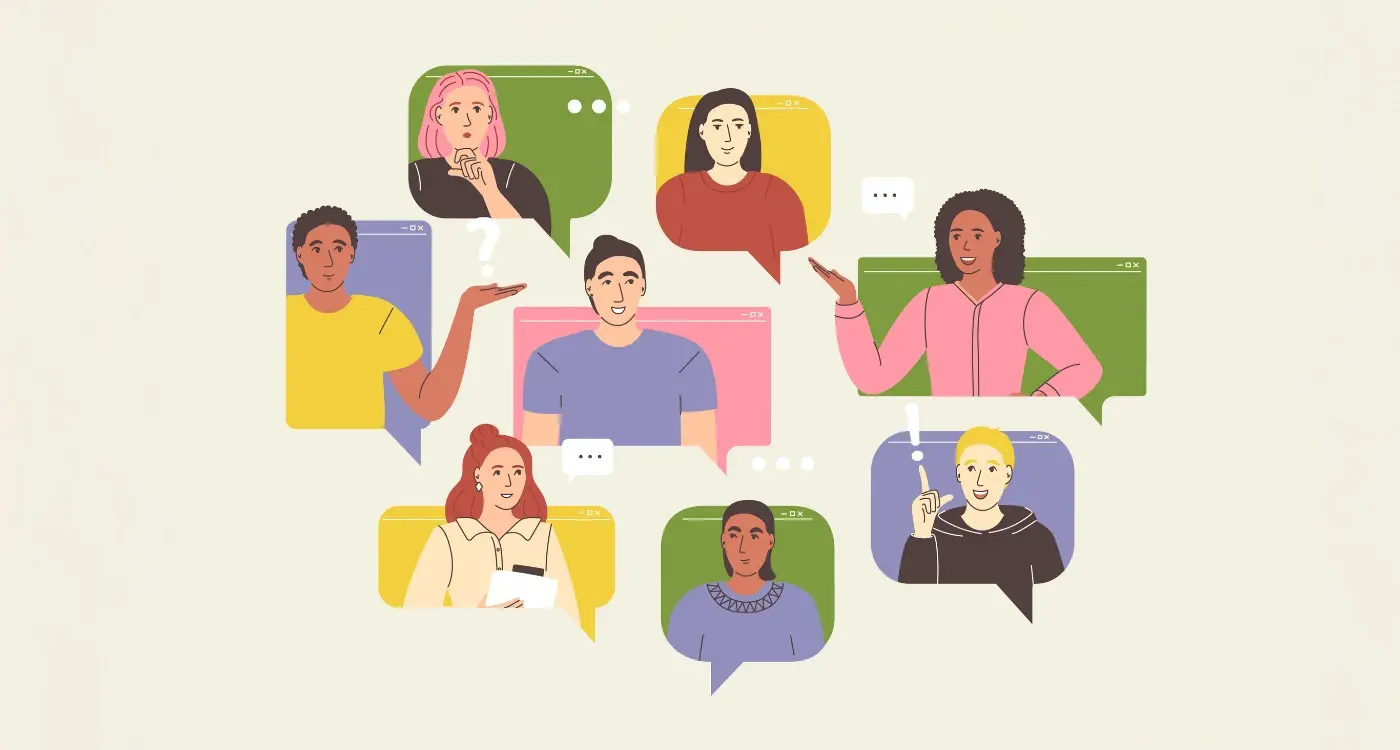How Do You Build a Developer Vetting Process That Works?
Three-quarters of mobile app projects fail to meet their original timeline and budget targets. After eight years building apps for everyone from scrappy startups to massive corporations, I can tell you that poor developer hiring is behind most of these failures. It's not the fancy features or marketing budgets that make or break projects—it's the people writing the code.
I've seen brilliant app ideas destroyed by developers who couldn't deliver what they promised. I've watched companies burn through budgets because they hired based on impressive CVs rather than actual skills. And honestly? It's painful every time, because these failures were completely avoidable with a proper vetting process.
Here's the thing though—most businesses approach developer hiring completely wrong. They focus on technical jargon they don't understand, get dazzled by portfolios that look impressive but hide serious problems, and skip the fundamental checks that would save them months of headaches later.
The cost of hiring the wrong developer isn't just money—it's the opportunity cost of not launching when your market window was open.
Building a developer vetting process that actually works isn't about creating impossible technical challenges or conducting gruelling interviews. It's about systematically evaluating the skills that matter, spotting the red flags that others miss, and understanding what separates developers who deliver from those who disappoint. Whether you're hiring your first developer or building an entire mobile app development team, getting this process right will save you time, money, and quite possibly your sanity.
Understanding the True Cost of Bad Developer Hiring
I've seen companies make some pretty expensive mistakes when it comes to hiring developers—and honestly, the financial impact goes way beyond just the salary you're paying. When you hire the wrong developer for your mobile app project, you're not just losing money; you're potentially setting your entire business back by months or even years.
Let me break down what bad developer hiring actually costs you. First, there's the obvious stuff: recruitment fees, salary, benefits, and equipment. But here's the thing—that's just the tip of the iceberg. The real damage happens when poor code quality starts affecting your app's performance, user experience suffers, and you end up with technical debt that haunts you for years.
The Hidden Costs You Don't See Coming
Bad developers don't just write subpar code; they create problems that ripple through your entire project. Security vulnerabilities that expose user data? That's a lawsuit waiting to happen. Poor architecture that can't scale? You'll be rebuilding from scratch when you hit 10,000 users instead of celebrating your growth.
- Lost revenue from app crashes and poor user experience
- Additional development costs to fix or rebuild faulty code
- Delayed product launches that miss market opportunities
- Team morale issues when other developers have to clean up messy work
- Reputation damage from negative app store reviews
- Legal costs if security breaches occur
The kicker? Studies show that fixing a bug after an app goes live costs about 100 times more than catching it during development. When you factor in lost users, negative reviews, and the time it takes to push updates through app store approval processes, that number gets even scarier.
Bad hiring decisions in mobile development aren't just HR problems—they're business disasters waiting to happen. That's why getting your vetting process right isn't optional; its essential for your apps survival.
Essential Skills to Look for in App Developers
Right, let's talk about what actually matters when you're vetting developers. After years of building apps and working with dozens of developers, I can tell you that the skills that look impressive on paper aren't always the ones that make or break your project.
First up—platform expertise. Your developer needs to genuinely understand iOS and Android, not just copy code from tutorials. I'm talking about someone who knows why certain animations feel janky on older Android devices, or why your app might get rejected from the App Store for memory issues. They should be comfortable with Swift or Kotlin, and if they're doing cross-platform work, they need to understand the trade-offs involved.
Technical Problem-Solving
But here's what really separates good developers from great ones: problem-solving skills. Mobile development is full of weird edge cases. Your app might crash on specific device models, or behave differently when users have accessibility settings enabled. The developers you want are the ones who can debug these issues methodically, not just throw more code at the problem until something works.
API integration is another big one. Most apps need to talk to servers, payment systems, or third-party services. Your developer should understand RESTful APIs, handle network errors gracefully, and know how to manage data synchronisation between the app and backend systems.
Ask candidates to walk you through how they'd handle offline functionality in an app. Their answer will reveal whether they truly understand mobile development constraints or if they're just thinking like web developers.
Don't overlook UI/UX implementation skills either. A developer might build a perfectly functional app that feels clunky to use. Look for someone who understands platform-specific design patterns and can implement interfaces that feel native to each operating system, especially when it comes to user experience considerations like dark mode implementation.
Creating a Technical Assessment That Actually Works
Right, let's talk about the bit that makes most people nervous—the technical assessment. I've seen companies throw impossible coding challenges at developers, expecting them to solve problems that would take a team weeks to figure out. That's not testing skill; that's just being unrealistic.
A good technical assessment should mirror the actual work your developer will be doing. If you're building a mobile app, don't ask them to solve abstract algorithm puzzles. Give them a real mobile problem to work through. I typically ask candidates to review a piece of existing code and suggest improvements, or to walk me through how they'd approach a specific feature we're planning to build.
What Makes a Fair Technical Test
The best assessments I've used focus on practical skills rather than textbook knowledge. Here's what actually works:
- Code review exercises using real examples from your project
- Problem-solving discussions about mobile-specific challenges
- Architecture questions about scalability and performance
- Debugging scenarios with common mobile issues
- API integration challenges they'll face in your app
Time limits are important too—nobody does their best work under artificial pressure. I usually give candidates a week to complete take-home tests, but make it clear the task should only take a few hours. This respects their current job commitments and gives you a better sense of their actual capabilities.
The key thing? Make sure you can actually evaluate the results properly. There's no point setting a technical test if you don't have the expertise to judge the answers. If you're not technical yourself, bring in someone who is or work with an agency that can help you assess the responses fairly, especially when it comes to evaluating technical feasibility and app development constraints.
Spotting Red Flags During Developer Interviews
After years of interviewing developers, I've learned that what people don't say is often more telling than what they do. Red flags aren't always obvious—they're usually subtle patterns that emerge during conversation. The biggest warning sign? When a developer can't explain their code choices in simple terms. If they resort to buzzwords and technical jargon without being able to break it down, it usually means they don't really understand what they're doing.
Watch out for developers who blame everything on external factors. Previous projects failed because of "bad management" or "unrealistic deadlines"—sure, these things happen, but if its always someone else's fault, you've got a problem. Good developers take ownership and can explain what they learned from challenging situations.
Communication and Problem-Solving Warnings
Another major red flag is when developers can't discuss trade-offs. Mobile development is full of compromises—performance vs battery life, features vs simplicity, speed of development vs code quality. If a candidate presents everything as black and white solutions, they lack the nuanced thinking needed for complex projects.
The developer who promises everything will be perfect and delivered ahead of schedule is usually the one who'll cause you the most headaches down the line
Pay attention to how they handle questions they don't know. Do they make something up or honestly say they'd need to research it? The latter is always preferable. Also, be wary of developers who haven't kept up with mobile platform changes—iOS and Android evolve constantly, and staying current isn't optional in this field. If they're still talking about development practices from five years ago as if they're current, that's a clear indicator they've stopped learning.
Portfolio Review: What Great Work Actually Looks Like
Right, let's talk about portfolios—because honestly, this is where you'll separate the wheat from the chaff. I've reviewed hundreds of developer portfolios over the years, and the difference between good work and mediocre work becomes crystal clear when you know what to look for. It's not just about pretty designs or fancy animations; it's about substance, problem-solving, and real-world impact.
First thing I always check? Whether they can actually show you working apps, not just screenshots or mock-ups. You'd be surprised how many developers present beautiful designs that were never actually built or launched. Ask for App Store links, TestFlight invites, or live demos. If they start making excuses about NDAs for every single project, that's a red flag.
Key Portfolio Elements That Matter
When I'm evaluating a developer's portfolio, I look for specific elements that tell me they understand the bigger picture. Great portfolios don't just show what was built—they explain why it was built and what problems it solved. Look for case studies that walk you through their thought process, technical challenges they faced, and how they measured success.
- Real apps with measurable results (downloads, user ratings, business impact)
- Code samples that demonstrate clean, maintainable programming practices
- Evidence of cross-platform experience if that's what you need
- Projects that show progression in complexity and skill over time
- Clear explanations of their role in team projects vs solo work
Pay attention to the diversity of their work too. A developer who's only ever built simple utility apps might struggle with your complex e-commerce platform. But someone who's tackled everything from fintech apps to gaming platforms? They've probably encountered the weird edge cases and technical challenges that'll inevitably pop up in your project. The best portfolios tell a story of growth, learning, and genuine problem-solving—not just technical showboating.
Testing Communication Skills and Cultural Fit
You know what? I've seen brilliant developers who could solve any coding problem you threw at them, but when it came to explaining their work to the client or working alongside our team... well, let's just say it didn't end well. Technical skills are just half the battle when you're vetting developers—communication and cultural fit can make or break your project.
During the interview process, I always throw in some curveball questions that force developers to explain complex technical concepts in simple terms. Can they walk you through how they'd explain a database structure to someone who's never heard of databases? If they start throwing around jargon without breaking it down, that's a red flag. Your clients won't understand technical speak, and neither will your project managers half the time.
Watch How They Handle Disagreement
Here's something most people miss in their developer vetting process—ask about a time they disagreed with a technical decision. Listen carefully to how they describe the situation. Do they respect other viewpoints? Can they compromise? Or do they come across as the type who thinks their way is the only way? Trust me, you don't want a developer who can't handle feedback or collaborate effectively.
Ask candidates to explain their most recent project to you as if you were the end user, not another developer. Their ability to communicate clearly here will tell you everything about how they'll interact with your team and clients.
Cultural fit isn't about finding people who are exactly like you—it's about finding developers who share your values around quality, deadlines, and client service. Some developers see mobile app development as just code; others understand it's about solving real business problems. You want the latter every single time.
Look, I'll be honest with you—most people skip reference checks entirely or just go through the motions. They'll call up the contacts, ask a few generic questions, and tick the box. But after years of hiring developers (and making some expensive mistakes along the way), I can tell you that reference checks are where you separate the wheat from the chaff.
Here's the thing about references: developers usually only give you contacts who'll say nice things about them. That's human nature, right? But even within those constraints, you can learn a massive amount if you know what questions to ask and how to read between the lines, much like conducting effective user research interviews.
Questions That Actually Get Results
Forget asking "Was John a good developer?" Instead, try something like "If you had a critical bug that needed fixing overnight, would this developer be someone you'd call?" The pause before they answer tells you everything. Or ask "What's one thing you wish this developer had done differently on your project?" Nobody's perfect, and if they can't think of anything, they're probably not being straight with you.
I always ask about deadlines too. "Did they meet their original estimates, or did projects typically run over?" Most developers are optimistic with timelines—it's part of the job—but you want to know if someone consistently underestimates by 20% or by 200%. There's a big difference!
Reading the Subtext
Pay attention to what references don't say. If they're enthusiastic about someone's technical skills but go quiet when you ask about teamwork, that's telling you something. Same if they praise their punctuality but seem hesitant about their problem-solving abilities. Sometimes the most important information comes from the topics they avoid rather than what they actually tell you.
Building Your Long-Term Developer Vetting Strategy
Right, so you've got your process sorted—but here's the thing, its not a set-it-and-forget-it situation. The mobile development world changes fast; what worked for hiring React Native developers two years ago might miss the mark today. I mean, we've seen entire frameworks rise and fall in that time!
Your vetting process needs to evolve with the industry. Keep track of which questions actually predict success and which ones don't. That brilliant algorithm challenge you're so proud of? If the last three developers who aced it turned out to be nightmare teammates, maybe it's time to bin it. I genuinely review our entire process every six months—not just tweaking around the edges, but properly questioning whether each step still serves its purpose.
Building Your Developer Pipeline
Don't wait until you desperately need someone to start looking. The best developers aren't usually job hunting when you need them most. Keep a running list of impressive candidates you've met, even if you couldn't hire them at the time. Stay in touch with former team members who've moved on. Build relationships with coding bootcamps and universities in your area.
The developers you want to hire are rarely the ones actively looking for jobs—they're the ones doing great work somewhere else who might consider the right opportunity
And here's something most people get wrong: your vetting process should actually get stricter as your team grows, not more relaxed. One bad hire when you're a team of three is manageable. One bad hire when you're a team of fifteen? That's a productivity killer that affects everyone. Scale your standards up, not down.
When building distributed teams, you'll also need to factor in the unique challenges of remote app development and how different time zones might impact collaboration and project delivery. This becomes especially critical when you're vetting developers who'll be working across multiple regions.
Building a proper developer vetting process isn't just about finding someone who can code—it's about finding someone who can deliver the mobile app your business actually needs. After eight years of hiring developers for everything from fintech startups to healthcare platforms, I can tell you that getting this right makes the difference between launching on time and budget, or ending up with a half-finished app that nobody wants to use.
The truth is, most businesses rush through the vetting process because they're eager to get started. I get it—you've got deadlines, investors breathing down your neck, and competitors launching similar apps. But here's the thing: spending an extra two weeks finding the right developer will save you months of headaches later on.
Your vetting process should be thorough but not overwhelming. Focus on the essentials we've covered—technical skills that match your project requirements, communication abilities that work with your team, and a track record that shows they can actually deliver. Don't get caught up in impressive CVs or fancy agency websites; what matters is whether they understand your users and can build something that solves real problems, including implementing essential security features that protect user data.
Remember, you're not just hiring someone to write code. You're bringing in a partner who'll help shape your app's user experience, suggest technical solutions you hadn't considered, and hopefully stick around for future updates and improvements. Take the time to get it right. Your users—and your budget—will thank you for it.
The mobile app market is competitive enough without handicapping yourself with the wrong development team. Use these strategies, trust your instincts, and don't settle for anyone who doesn't meet your standards.
Share this
Subscribe To Our Learning Centre
You May Also Like
These Related Guides

How Do You Handle Communication Barriers With Remote Development Teams?

Can I Build An App Without A Technical Background?



